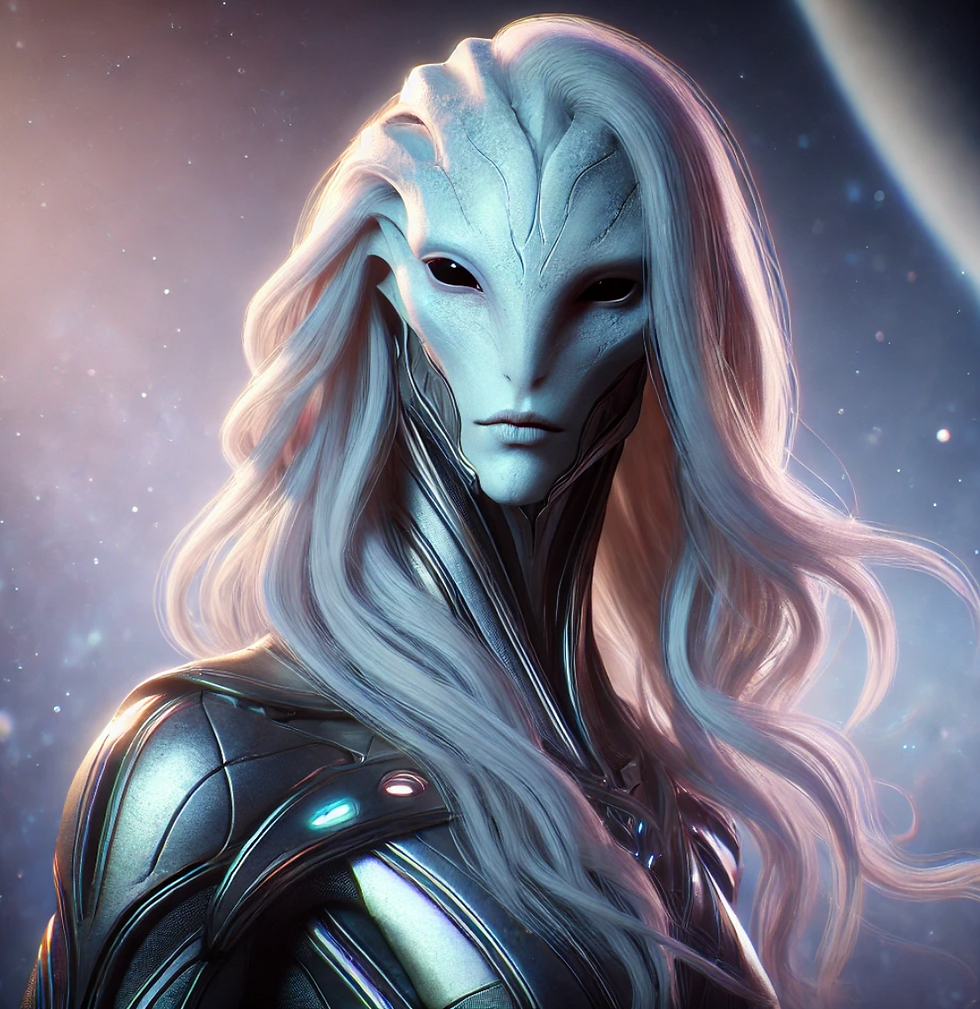Exploring the Cosmic Garden: Is Intelligent Life Waiting on Distant Worlds
- oganes karayan
- Jun 3, 2025
- 3 min read
In the endless stretch of the universe, where light takes millions of years to travel between galaxies, humanity is just a small part of a much larger picture. Each galaxy is like a vibrant city of stars, with billions of them housing countless planets. The distances separating these galaxies can be mind-boggling; for example, traveling from our Milky Way to the Andromeda Galaxy, our closest neighbor, would take an incredible 2.5 million years at light speed.
Even with these staggering spans, the question remains: Is there intelligent life on other worlds? If the universe is a sprawling garden, could Earth be just one of many places where life has taken root? Scientists are actively searching the skies, hopeful that somewhere, perhaps in the habitable zone of a distant star, other forms of life may be thriving.
The Promise of Other Worlds
Let’s consider a fictional planet called Zhraka, orbiting a star similar to our sun in the Andromeda Galaxy. Imagine Zhraka's lush, bioluminescent forests and vibrant oceans teeming with diverse forms of life. This planet could harbor a civilization that has been developing for millions of years, potentially with the technology to harness the planet's natural resources, like its magnetic fields. As they gaze up at twin moons lighting their night sky, these beings might ponder the same questions we do about existence and solitude.
Recent findings from the Kepler Space Telescope note that over 2,300 candidate exoplanets have been identified in habitable zones, including potentially Earth-like planets. Each discovery propels our understanding further and sparks excitement about the variety of ecosystems that could exist beyond our own.
The Challenge of Distances
The vastness of space presents significant challenges, yet it also encourages innovative thinking about how to explore these distant worlds. Some scientists theorize that advanced civilizations might one day develop technology to manipulate spacetime, creating wormholes or portals that could allow for faster-than-light travel. Such breakthroughs would transform our perception of intergalactic distance from an insurmountable barrier to a navigable journey.
Imagine stepping through a wormhole and arriving near Zhraka. The wonders that might await could expand our understanding of biology, technology, and culture. What insights could we gain from beings who evolved under different circumstances? Each possibility invites us to reconsider not only our own existence but also our connection to the cosmos.
The Search for Signals
While we explore various avenues of space travel, the Search for Extraterrestrial Intelligence (SETI) plays a vital role in our quest. Using powerful radio telescopes and advanced software, scientists diligently scan the cosmos for signals from advanced civilizations. They look for patterns that might indicate intelligent life reaching out.
Although we have yet to receive a clear message, this ongoing search fuels determination within the scientific community. A notable example is the Wow! signal, detected in 1977, which remains unexplained. Each silent moment raises curiosity about how we communicate as a civilization. The Golden Record aboard the Voyager spacecraft, for instance, serves as a time capsule of Earth’s diverse cultures and languages, illustrating humanity’s desire for connection across the stars.
The Infinite Possibilities
The universe is vast, revealing endless possibilities of life, like that on Zhraka. As we continue our explorations and dreams, we may eventually encounter intelligent beings from another world.
This potential contact could have monumental implications for both civilizations. We could share knowledge that reshapes our understanding of life itself. Statistics show that 70% of Americans support the search for extraterrestrial life, indicating a widespread desire for connection. Would our values change? Could intergalactic partnerships emerge, or would the discovery of other intelligent beings lead to tension?
Embracing Our Cosmic Journey
The search for intelligent life beyond Earth transcends mere academic interest; it captures a core aspect of our humanity. Our curiosity drives us to explore and connect. As we stand on the brink of the unknown, we take on the role of explorers in this cosmic garden.
Through our explorations, we expand our understanding and foster unity among ourselves on Earth. Perhaps the most significant discovery lies not in finding other civilizations but in better understanding ourselves and our responsibilities within the broader universe.
In this intricate cosmic tapestry, may we remain committed to our quest for knowledge, holding on to the hope that intelligent life is waiting among the stars, ready to share the wonders of existence.







Comments